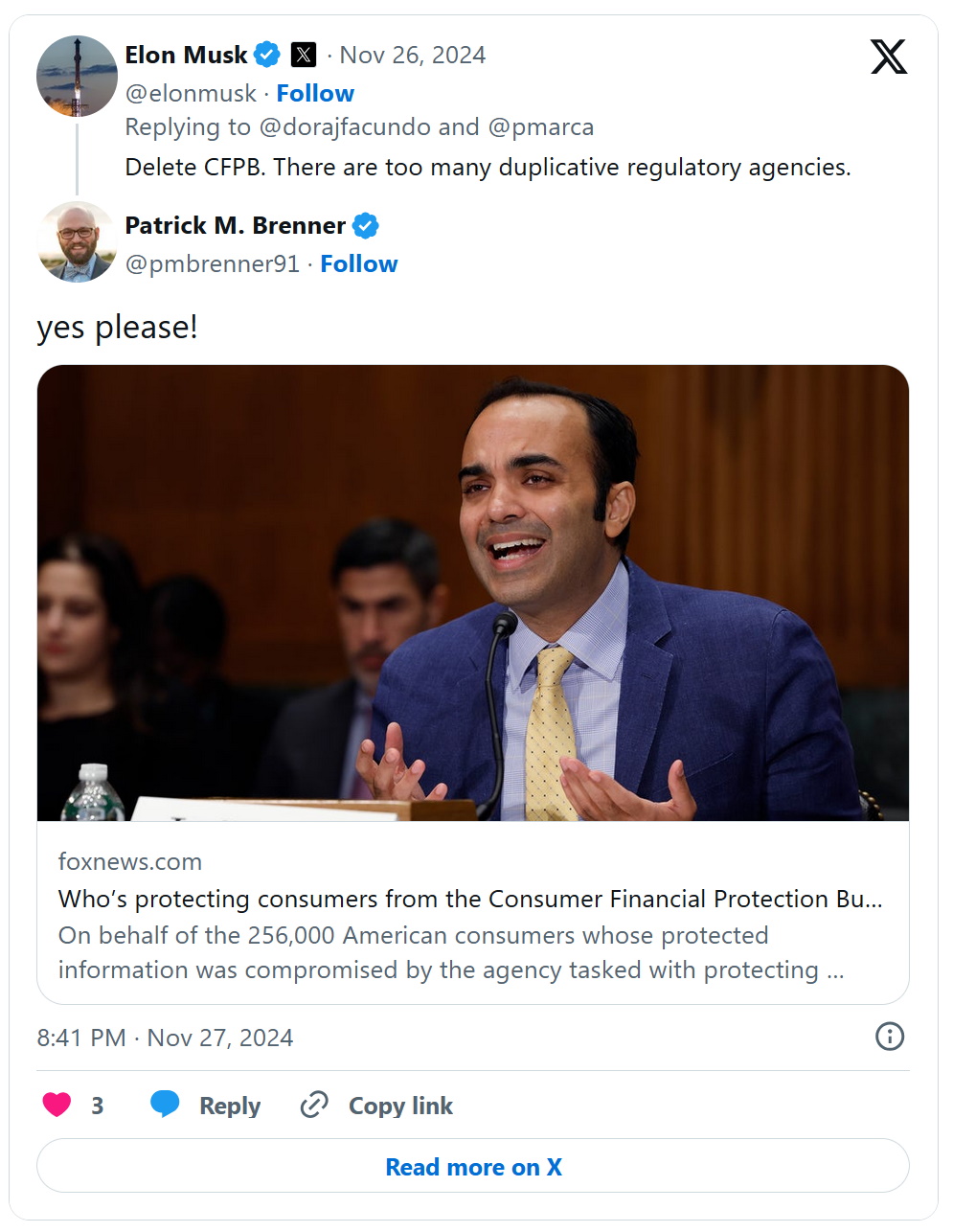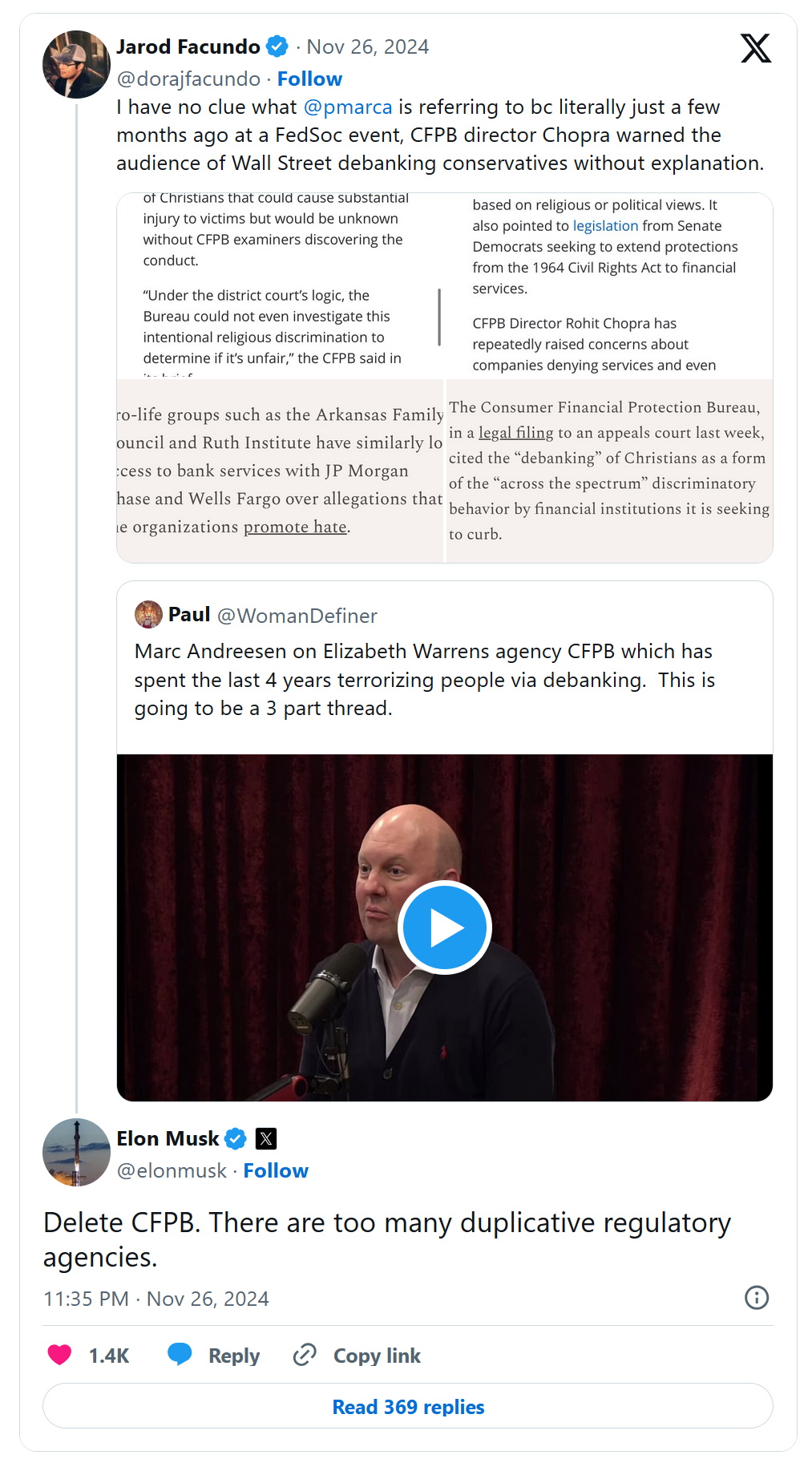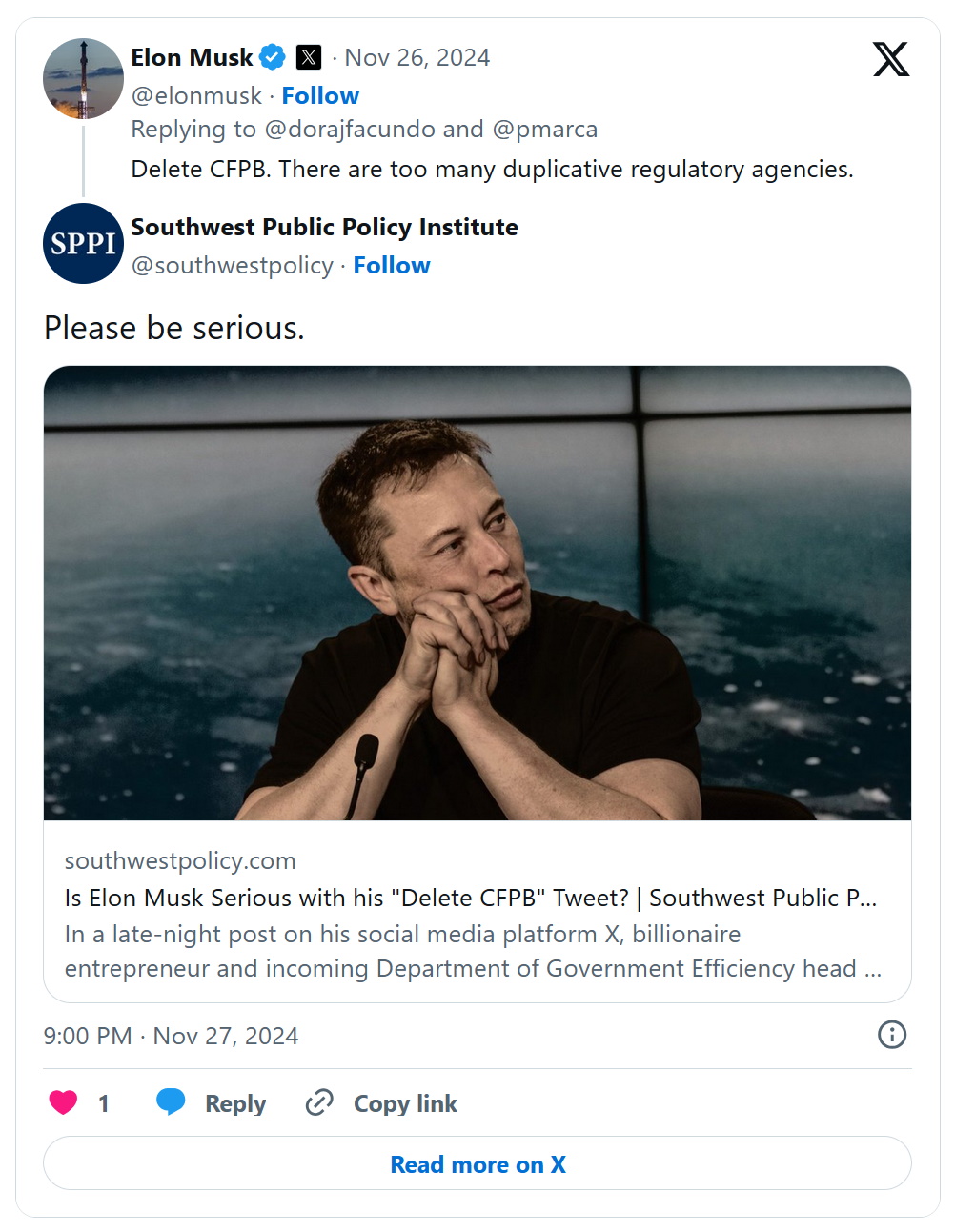In a late-night post on his social media platform X, billionaire entrepreneur and incoming Department of Government Efficiency head Elon Musk made a bold declaration: “Delete CFPB. There are too many duplicative regulatory agencies.” Musk’s succinct yet striking comment has ignited a vital debate about the role and efficacy of the Consumer Financial Protection Bureau (CFPB) in modern America.
The CFPB was established in 2010 under the Dodd-Frank Act with the noble intent of protecting consumers from abusive financial practices. However, under its current leadership and regulatory approach, the agency has frequently found itself at odds with the very markets it was designed to oversee. Critics, including Musk, argue that the CFPB has grown into an unaccountable bureaucracy, burdening industries and stifling innovation while failing to deliver tangible benefits to consumers.
Musk’s tweet followed comments made by venture capitalist Marc Andreessen on The Joe Rogan Experience, where Andreessen accused the CFPB of using its authority to “terrorize financial institutions” and prevent startups from competing with big banks. These allegations echo a broader sentiment that the CFPB’s actions often create barriers for innovators and smaller players in the financial ecosystem.
Under Director Rohit Chopra, the CFPB has aggressively pursued lawsuits and fines against fintech companies, lenders, and startups, often citing consumer protection as the justification. Yet, the agency’s approach has raised concerns about its transparency and fairness. For instance, in 2021, the CFPB shut down the online lender LendUp, citing deceptive practices. While consumer protection is essential, critics argue that such actions disproportionately affect smaller, innovative firms, leaving established players with less competition.
This pattern extends beyond the financial sector. Recent CFPB directives have targeted digital comparison tools, platforms that millions of Americans rely on for finding services and products. These tools, from travel sites like Expedia to gig platforms like Upwork, enable consumers to make informed choices and stretch their budgets—especially critical in times of high inflation. However, the CFPB’s sweeping regulations risk stifling these platforms, further limiting consumer options.
Perhaps one of the CFPB’s most glaring issues is its own lack of accountability. Last year, a former CFPB employee caused a significant data breach by transferring confidential records of 256,000 consumers to a personal email account. Despite the gravity of this “major incident,” the agency delayed notifying affected individuals. The incident underscores a troubling double standard: while the CFPB enforces strict penalties on private companies for similar breaches, it appears to face little consequence for its own failures.
Musk’s call to “Delete CFPB” aligns with a growing chorus of voices advocating for significant changes to how the bureau operates—or even its complete dismantling. The CFPB’s funding structure, which bypasses congressional appropriations, further isolates it from traditional checks and balances. This autonomy has allowed it to operate with little oversight, fostering an environment where overreach and inefficiency can thrive.
With Musk set to lead the Department of Government Efficiency, his critique carries additional weight. If the incoming administration prioritizes regulatory reform, the CFPB should be at the top of its list. The agency’s track record of overregulation, lack of clarity, and failure to safeguard consumer trust suggests that its continued existence may do more harm than good.
The conversation Musk has sparked is not merely about the CFPB—it’s about the broader need to evaluate and streamline government agencies to ensure they serve their intended purpose. Protecting consumers is a noble goal, but it must be achieved through transparent, fair, and efficient regulation. The current trajectory of the CFPB demonstrates that it is not meeting this standard.
As Musk’s tweet continues to generate discussion, it serves as a reminder that no government agency should be beyond scrutiny. The CFPB’s future—whether reformed, restructured, or eliminated—will be a critical test of how we balance consumer protection with innovation and economic freedom.

